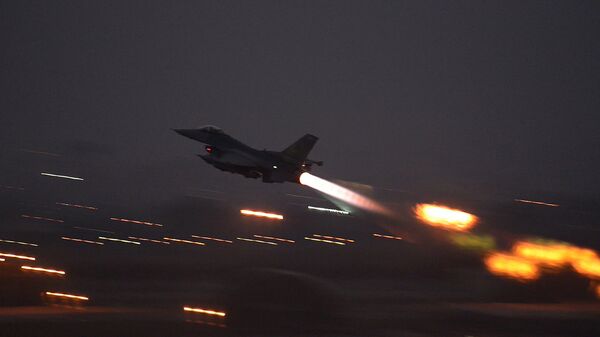The Thursday showdown between man and machine didn’t bode well for the future of flesh-and-blood aircraft pilots, as one of the US Air Force’s top F-16 fighter pilots failed to shoot down an AI-controlled adversary in even one of the five matches.
While the pilot’s name wasn’t given, their call sign was “Banger,” and they graduated from the US Air Force Weapons School, a sort of elite graduate school for Air Force pilots.
If you want to watch the simulated air-to-air combat, DARPA livestreamed the Thursday event on YouTube.
The event was the last of three trials that pitted eight different AI dogfighting algorithms against each other, the champion of which won the right to face a human pilot. The triumphant AI was developed by Heron Systems, an artificial intelligence firm based in southern Maryland, and the simulator itself was built by DARPA.
“Regardless of whether the human or machine wins the final dogfight, the AlphaDogfight Trials is all about increasing trust in AI,” Col. Dan “Animal” Javorsek, program manager in DARPA’s Strategic Technology Office, said in a news release prior to the final showdown. “If the champion AI earns the respect of an F-16 pilot, we’ll have come one step closer to achieving effective human-machine teaming in air combat, which is the goal of the ACE program.”
According to Breaking Defense, the competition was conducted as part of DARPA’s Air Combat Evolution (ACE) program, which aims to figure out how human and AI pilots can share operational control of a not just a single fighter jet, but over multiple drones controlled by a single aircraft, such as the “loyal wingman” system being developed by the Air Force.

